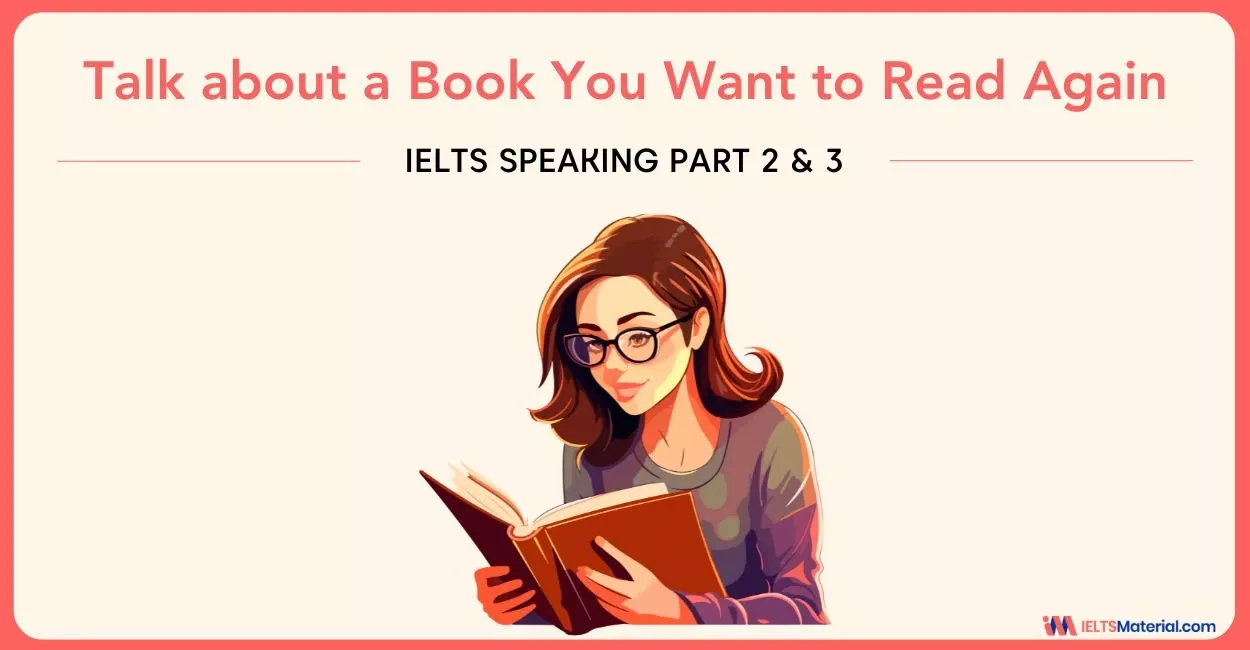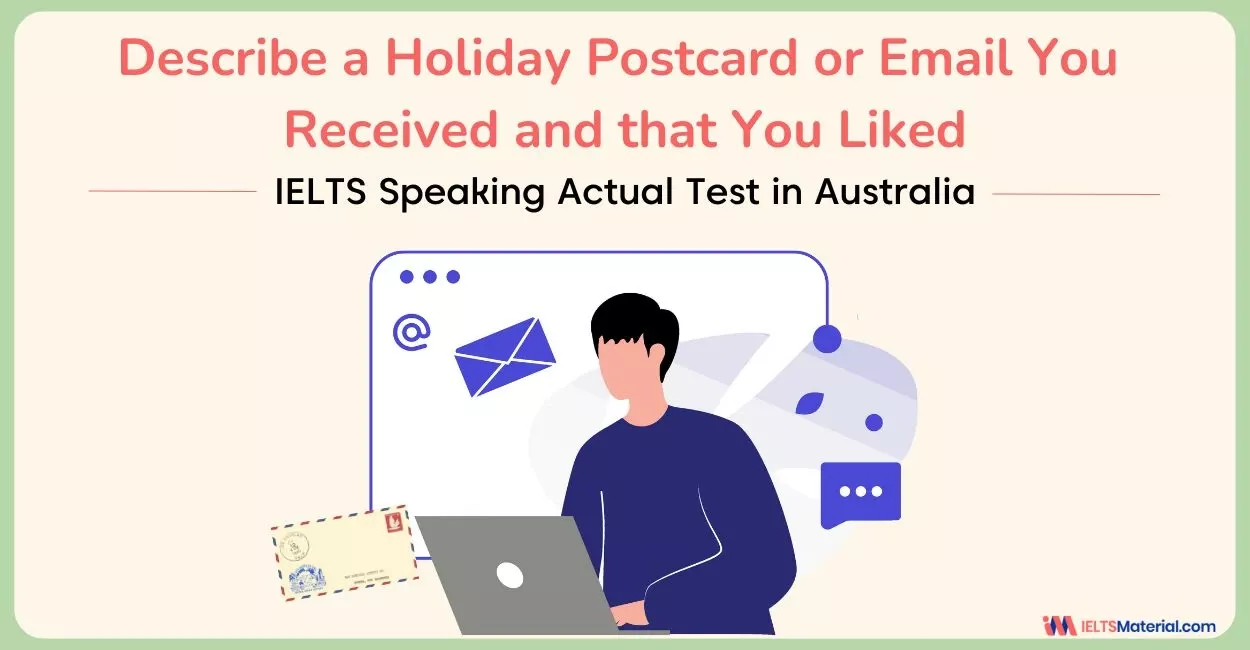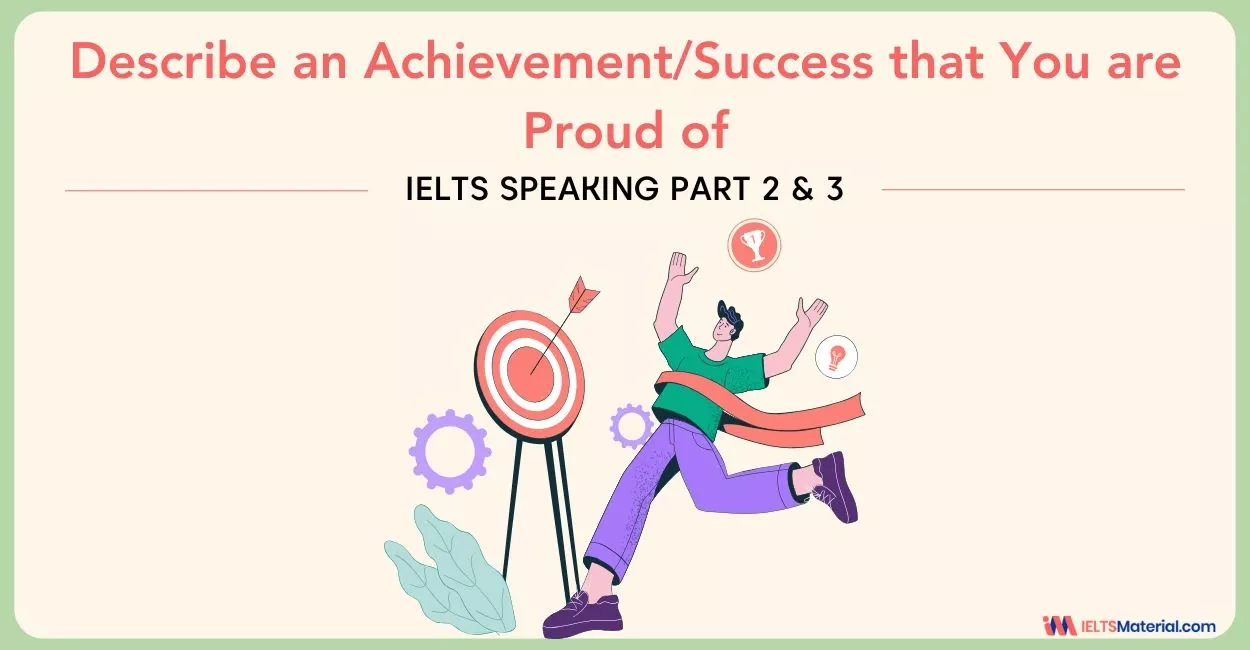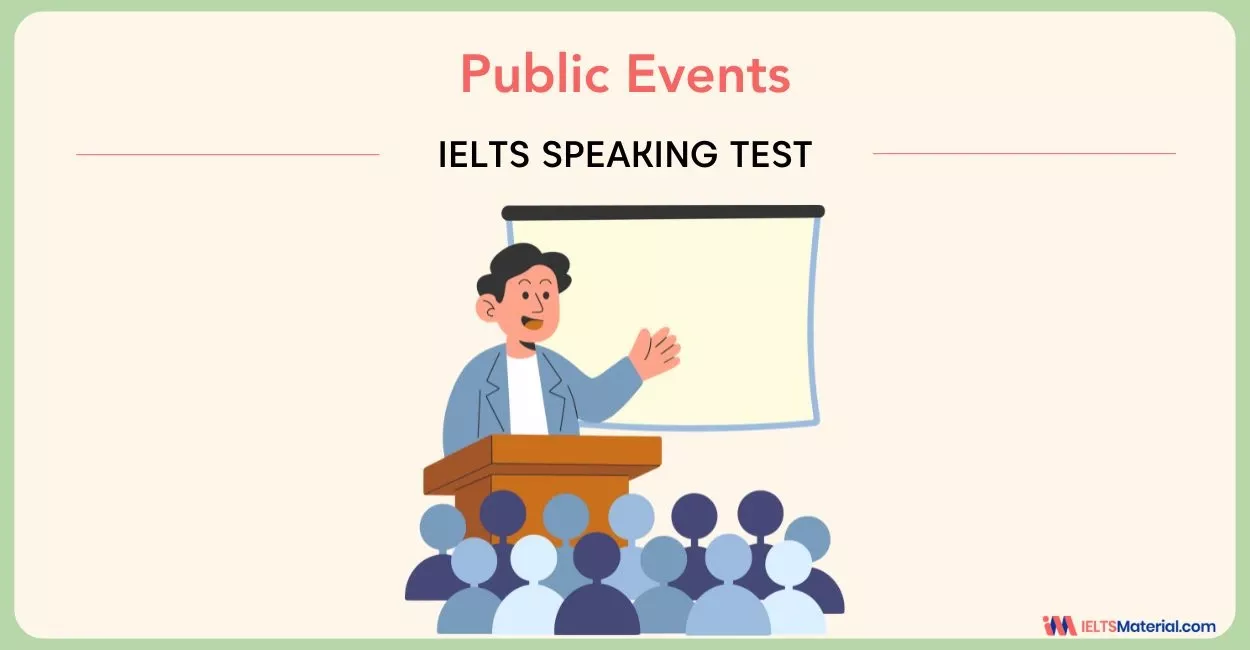Talk about a Book You Want to Read Again - IELTS Speaking Actual Test
Prepare for IELTS Speaking by practising Part 2 and 3 questions related to ‘Talk about a Book You Want to Read Again’. Here you will find sample Band 7–8 answers and topic-specific vocabulary to make your responses fluent, expressive, and exam-ready.
Table of Contents
- Book IELTS Speaking Part 1: Common Questions and Answers
- Talk about a Book You Want to Read Again – IELTS Speaking Part 2 Question & Sample Answers
- Vocabulary You Can Use For IELTS Speaking Part 2 Questions on Talk about a Book You Want to Read Again
- Talk about a Book You Want to Read Again IELTS Speaking Part 3 Question & Sample Answers
- Vocabulary You Can Use For IELTS Speaking Part 3 Questions Related to Talk about a Book You Want to Read Again

Limited-Time Offer : Access a FREE 10-Day IELTS Study Plan!
Books have always been an integral part of language learning and intellectual growth, especially for IELTS aspirants who aim to develop strong vocabulary and comprehension skills. The IELTS cue card ‘Talk about a Book You Want to Read Again’, one of the recent IELTS topics in IELTS Speaking test, asks you to reflect on a memorable reading experience and express your emotional and intellectual connection to literature.
In this blog, you will explore a high-quality Band 8 sample answer for the cue card ‘Talk about a Book You Want to Read Again’, related Part 3 questions and answers, each followed by advanced vocabulary to help you master this topic and give you an idea of what IELTS examiners look for in the speaking test.
Book IELTS Speaking Part 1: Common Questions and Answers
IELTS Speaking Part 1 is mostly about self-introduction for IELTS Speaking Test as the examiner asks general questions about you and your experiences. So, books being a timeless topic in the IELTS Speaking test, often appear in Part 1 questions about reading habits and personal preferences.
The sample Band 8+ IELTS Speaking Part 1 questions and answers will help you express your thoughts fluently while using advanced vocabulary related to reading, genres, and learning.
- Do you like reading books?
Yes, I absolutely enjoy reading books because they allow me to escape into different worlds and broaden my imagination. I find reading both relaxing and intellectually stimulating, especially after a long, hectic day.
- What kind of books do you like to read?
I’m particularly fond of psychological thrillers and contemporary fiction. These genres keep me hooked because they explore complex human emotions and moral dilemmas in a very engaging way.
- How often do you read books?
I try to read for at least 30 minutes every day, usually before going to bed. It has become a routine that helps me unwind and improve my vocabulary at the same time.
- Do you prefer reading printed books or e-books?
I prefer printed books because I love the tactile experience of flipping through the pages and the comforting smell of paper. However, I do use e-books when I’m traveling since they’re more convenient to carry.
Talk about a Book You Want to Read Again – IELTS Speaking Part 2 Question & Sample Answers
In IELTS Speaking Part 2, you may be asked to speak on cue cards like ‘Describe a memorable book’ or ‘Talk about a book you want to read again’. So, this section provides a model Band 8 answer that guides you on how to answer IELTS Speaking Part 2 and showcases storytelling, personal reflection, and topic-specific expressions to impress the examiner.
Talk about a book you want to read again.
- When you read it for the first time?
- What kind of book it is?
- What the book is about?
- And explain why you like read it again.
Talk about a Book You Want to Read Again - Sample Answer
- When you read it for the first time?
One book I would definitely love to read again is “Gone Girl” by Gillian Flynn. I first read it about three years ago during my university vacation when I was looking for something gripping and unpredictable. At that time, I had already heard a lot of buzz around the book because of its movie adaptation. So, I decided to give it a try, and it completely exceeded my expectations.
- What kind of book it is?
- What the book is about?
It is a psychological thriller that delves deep into the complexities of marriage, manipulation, and identity. The story revolves around a married couple, Nick and Amy, whose relationship starts to crumble. When Amy mysteriously disappears on their fifth wedding anniversary, suspicion immediately falls on Nick. As the plot unfolds through alternating perspectives, the reader is drawn into a dark web of deceit, revenge, and emotional turmoil.
- And explain why you like read it again.
What fascinated me most was the author’s ability to portray flawed, deeply human characters and make readers question who the real villain is. The plot twists are so unpredictable that even after finishing the book, I kept thinking about it for days. I’d love to read it again because it’s one of those novels that reveals new psychological layers every time you revisit it. Moreover, Gillian Flynn’s sharp, evocative writing style keeps you on edge from start to finish, which makes the reading experience both thrilling and thought-provoking.
Kickstart your IELTS speaking preparations now with our experts!
Book FREE IELTS online classes!
Vocabulary You Can Use For IELTS Speaking Part 2 Questions on Talk about a Book You Want to Read Again
Here is a list of the latest IELTS Speaking vocabulary to boost your score related to the topic, Talk about a Book You Want to Read Again.
|
Word/Phrase |
Meaning |
Example Sentence |
|---|---|---|
|
Gripping |
very exciting and interesting |
The book was so gripping that I couldn’t put it down. |
|
Unpredictable |
not able to be foreseen or known beforehand |
The ending was completely unpredictable and shocking. |
|
Manipulation |
controlling or influencing someone cleverly or unfairly |
The novel explores psychological manipulation in toxic relationships. |
|
Crumbled |
to break down or fall apart |
Their marriage slowly crumbled under constant suspicion. |
|
Deceit |
the act of keeping the truth hidden, especially to gain an advantage |
The story is built on layers of deceit and half-truths. |
|
Revenge |
the action of hurting someone in return for harm done |
The main character’s revenge plot was both chilling and clever. |
|
Turmoil |
a state of great disturbance or confusion |
The protagonist’s mind was in emotional turmoil throughout the story. |
|
Flawed |
having imperfections or weaknesses |
The author’s portrayal of flawed characters makes them more realistic. |
|
Evocative |
bringing strong images, memories, or feelings to mind |
The writer’s evocative descriptions heighten the suspense. |
|
Thought-provoking |
making you think deeply about a subject |
It is a thought-provoking novel that questions human morality. |
Talk about a Book You Want to Read Again IELTS Speaking Part 3 Question & Sample Answers
IELTS Speaking Part 3 explores broader discussions about reading culture, preferences, and the impact of literature. Here, you will find expert-level answers that help you discuss books analytically, demonstrating strong reasoning and fluency.
- Do people in your country like to read books?
Yes, reading is quite popular in my country, especially among students and young professionals. Many people enjoy fiction, self-help books, and biographies, as they help expand knowledge and imagination. However, with the growing influence of digital media, the habit of reading printed books has declined to some extent. Still, book fairs and literary festivals continue to attract avid readers every year.
- Is it good for old people to read books?
Absolutely, reading books is good for people of all ages, especially for the elders. Reading offers mental stimulation and emotional comfort for elderly people. It keeps their minds sharp, reduces stress, and provides a sense of companionship. Many older adults prefer reading historical novels or memoirs that help them reconnect with the past and relive cherished memories. It’s also an excellent way to maintain cognitive health.
- Does gender matter when it comes to reading books?
In modern times, gender hardly plays a role in reading preferences. Men and women alike read across various genres - from romance and science fiction to business and philosophy. However, social norms sometimes influence reading habits; for example, women may be more drawn to emotional narratives, while men might prefer thrillers or non-fiction. But ultimately, reading is a universal passion that transcends gender boundaries.
- Is it good to make movies from books?
Yes, adapting books into movies can be a wonderful way to bring stories to life for a broader audience. However, some adaptations fail to capture the essence of the original text. A well-made film can enhance the emotional impact of a story, but it can never fully replace the imaginative experience of reading. In my view, both mediums complement each other beautifully.
Want a comprehensive package for IELTS Speaking preparation?
Check out the IELTS Speaking Band 8 Preparation Course with FREE ebooks!
Vocabulary You Can Use For IELTS Speaking Part 3 Questions Related to Talk about a Book You Want to Read Again
The following list provides a compilation of IELTS vocabulary, including terms from the Part 3 questions provided, and additional topic-specific vocabulary and phrases, which will be useful for structuring your answers for ‘Talk about a Book You Want to Read Again’ and similar topics.
|
Word/Phrase |
Meaning |
Example Sentence |
|---|---|---|
|
Avid |
extremely interested or enthusiastic about something |
She is an avid reader who finishes two novels a week. |
|
Stimulate |
to encourage something to develop or become more active |
Reading regularly can stimulate brain function in older adults. |
|
Companionship |
the pleasant feeling of being with someone else |
Books provide companionship for those who live alone. |
|
Cognitive |
connected with mental processes such as thinking and learning |
Reading improves cognitive skills like focus and memory. |
|
Transcend |
to go beyond the usual limits of something |
Literature has the power to transcend cultural and gender boundaries. |
|
Adaptation |
a film, TV program, or play that has been changed from a book |
The adaptation of the novel was visually stunning but lacked depth. |
|
Essence |
the most important quality or feature of something |
The movie captured the essence of the book’s emotional journey. |
|
Narrative |
the story or description of a series of events |
The narrative style of the novel makes it compelling. |
|
Memoir |
a book written about a person’s own life and experiences |
His memoir gives a vivid account of life during wartime. |
|
Philosophy |
the study of the nature of existence, knowledge, and values |
Reading philosophy can change one’s perspective on life. |
To conclude, reading books not only enhances language and imagination but also deepens emotional intelligence, which are skills that are invaluable for IELTS candidates. So, practice describing books and taking IELTS Speaking practice tests fluently and naturally, and you will be ready to impress the IELTS examiner with both language and depth of thought.
Useful Links:
- Books: IELTS Speaking Practice Test 13
- Describe a book you have recently read – IELTS Cue Card Sample Answers
- Describe Your Favourite Book - IELTS Speaking Cue Card
- Describe an Exciting Book you Read- IELTS Cue Card
- Using Contractions in IELTS Speaking and Writing
- How to Organize Your Responses on the IELTS Speaking Exam?
Explore IELTS Speaking

Start Preparing for IELTS: Get Your 10-Day Study Plan Today!
Explore other Speaking Practice Tests
Recent Articles
Haniya Yashfeen

Kasturika Samanta

Kasturika Samanta









Post your Comments